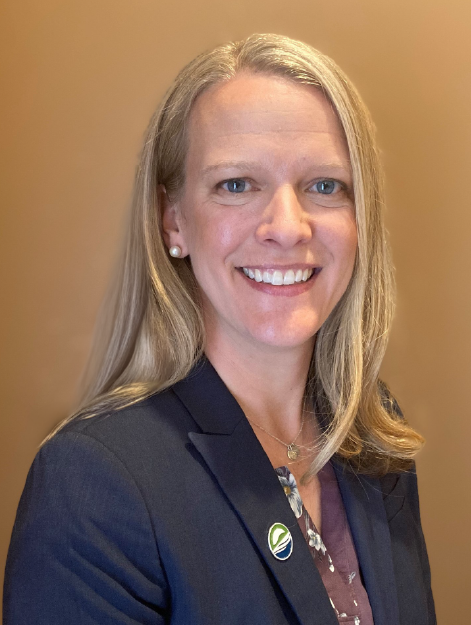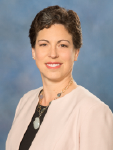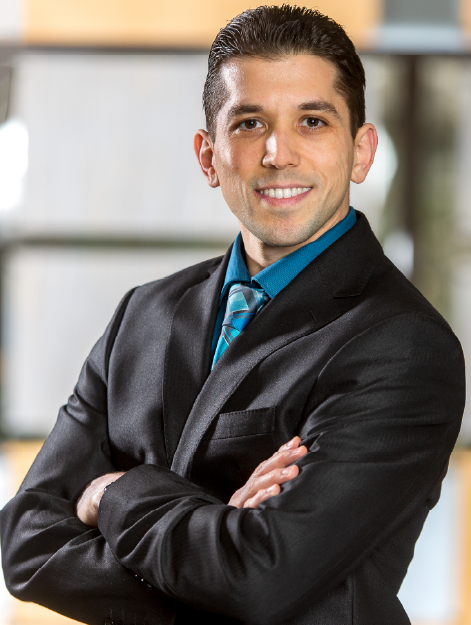Agenda Coming Soon!
Stay tuned for this year’s conference agenda!
2025 Conference Agenda

Friday, October 3, 2025
9:00 am - 5:00 pm
Sentinel Hotel
614 SW 11th Ave, Portland, OR 97205
Changing for a Changing Climate
Overcoming the Headwinds of Meeting Oregon’s Clean Energy Goals
The 2020s have brought a lot of change to Oregon’s energy landscape. From customer affordability to growing energy demands, the challenges we faced at the start of the decade are much different than today. Oregon is now five years out from meeting its 2030 climate goals for both electric and gas utilities. As we work toward a cleaner energy system, we must reflect on the progress we’ve already made and face the mounting challenges of the next half-decade. While Oregon has a lot of challenges, we also have a lot of opportunities to move into clean energy that equitably meets the needs of our communities.
Conference Agenda
8:30 am - Check In & Light Breakfast
9:00 am - Opening Speech
9:15 am - Featured Panel
2021: Back to the Future
10:45 am - Morning Breakout Sessions
Panel 1A: Hungry Hungry Hyperscalers
Panel 1B: Unplugged from Washington D.C.
12:00 pm - Lunch with Vegan and Gluten-Free Options
1:00 pm - Keynote: Fireside Chat with Janine Benner & Letha Tawney
2:00 pm - Afternoon Breakout Sessions
Panel 2A: Disconnected: Our Fourth Largest City
Panel 2B: Powering Careers: Workforce Development for a Clean Energy Transition
3:30 pm - Consumer Champion Award Ceremony
4:00 pm - Networking Happy Hour
2025 Supplemental Materials
Additional materials are provided by moderators and panelists for anyone seeking to learn more about the topics discussed at each session. Materials can include laws, legal documents, academic research, and more. Learn more here!
Food & Beverages
A light breakfast with coffee, tea, and additional refreshments is available beginning at 8:30 am. Lunch will be provided to attendees at noon with vegan and gluten-free options. Attendees are welcome to join the Networking Happy Hour at 4 pm, where hors d’oeuvres, beer/wine, and non-alcoholic beverages will be available.
Parking & Transportation
Attendees can park at metered parking spots or in one of the area’s pay-to-park lots. There is a CityCenter Lot across the street from the service entrance, and a SmartPark Garage on 10th Avenue.
The Sentinel Hotel is also conveniently located near many public transportation options.
Bus Lines: 15, 63, 20, 8, 9, 17, and more!
Max lines: Red, Blue
Streetcar: A, B, NS
See all nearby stops!


Featured Panel
2021: Back to the Future
Four years ago, Oregon passed HB 2021: 100% Clean Electricity. As we near the first benchmarks for electric utilities to reduce emissions, it’s time to revisit this landmark legislation to recenter the vision behind the law. Oregon’s energy landscape looks much different than in 2021, bringing new challenges and context to how we approach rolling out clean energy.
By reuniting those who created Oregon’s premier clean energy law, we will explore how we got here, dive into what’s changed since its passing, and what we’re facing as we move to emission-free electricity.
Moderator: Bob Jenks, Executive Director, Oregon CUB
Panelists:
Representative Pam Marsh, State Representative, Oregon State Legislature
Kristen Sheeran, Ph.D., Vice President, Policy and Resource Planning, Portland General Electric
Meredith Connolly, Director of Policy and Strategy, Climate Solutions
Nikita Daryanani, Climate and Energy Policy Manager, Coalition of Communities of Color

Morning Breakout Sessions
Panel 1A—Hungry Hungry Hyperscalers
While most of Oregon’s energy demand has stayed constant over the past decade, one sector has seen exponential growth: data centers. One data center can use the same amount of electricity as the City of Ashland and come online within two years. The need and speed of data centers are presenting significant impacts on both utility growth and customer affordability. As we face historic demand for energy and clean energy requirements, the challenge of satisfying the needs of competing demands looms large.
This panel weaves together expertise on data centers, resource planning, and consumer advocates to answer top questions about the newest, largest energy users in town. We will dig into what resources Oregon utilities need to serve the hyperscaled load of data centers while maintaining emission reduction targets.
Moderator: Claire Valentine-Fossum, General Counsel, Oregon CUB
Panelists:
Jimmy Lindsay, Director - Resource Planning & Strategy, Portland General Electric
Senator Janeen Sollman, State Senator, Oregon State Legislature
Joshua Hatch, Partner, Brightworks Sustainability
Elijah Cetas, Energy Policy Analyst, Columbia River Inter-Tribal Fish Commission (CRITFC)
Panel 1B—Unplugged from Washington D.C.
After nearly a year of uncertainty from Washington, D.C., it’s time for Oregon’s energy stakeholders to rethink things at home. Despite a major shift in priorities from the federal government, Oregon is staying strong in our commitment to clean energy, electric transportation, home energy efficiency, and affordable energy. But this commitment is not easy, as severed federal ties limit resources. Massive cuts to vital programs like the Low-Income Home Energy Assistance Program (LIHEAP) and clean energy programs are forcing states to respond. How can we keep our commitments to communities as we unplug from D.C.?
This discussion will explore Oregon’s new challenges, strategies for filling the gaps, and a look at the path forward. While there is a lot to mourn, this panel reminds us of the strength we can have together in building our own energy future.
Moderator: Jennifer Hill-Hart, Policy & Program Director, Oregon CUB
Panelists:
Lizzie Rubado, Director of Innovation and Development, Energy Trust of Oregon
Edith Bayer, Energy Systems Senior Policy Analyst, Oregon Department of Energy
Charity Fain, Executive Director, Community Energy Project
Irion Sanger, Attorney, Sanger Greene PC

Keynote: Fireside Chat with Janine Benner & Letha Tawney
As we explore the challenges of meeting Oregon’s climate mandates, we also must take care to envision a hopeful future. In lieu of a traditional keynote speaker, Bob Jenks will sit down with two industry leaders: ODOE Director Janine Benner and Oregon Public Utility Commission Chair Letha Tawney.
This fireside chat will feature what gives these speakers optimism and what they hope for Oregon’s clean energy future. Enjoy this thoughtful lunchtime talk and learn what’s on the mind of these leaders.
Janine Benner
Director, Oregon Department of Energy
 Janine Benner serves as the Director of the Oregon Department of Energy. Janine joined ODOE in 2017 as Assistant Director for Planning and Innovation and was confirmed by the Oregon Senate as ODOE’s director in February 2018. Janine came to ODOE from the U.S. Department of Energy, where she served as Associate Assistant Secretary in the Office of Energy Efficiency and Renewable Energy, and as Deputy Assistant Secretary in the Office of Congressional and Intergovernmental Affairs. Janine also spent 12 years working for Congressman Earl Blumenauer (D-OR), as Energy and Environmental Policy Advisor, Legislative Director, and Deputy Chief of Staff. She grew up in Portland, OR and has a degree in history from Princeton University.
Janine Benner serves as the Director of the Oregon Department of Energy. Janine joined ODOE in 2017 as Assistant Director for Planning and Innovation and was confirmed by the Oregon Senate as ODOE’s director in February 2018. Janine came to ODOE from the U.S. Department of Energy, where she served as Associate Assistant Secretary in the Office of Energy Efficiency and Renewable Energy, and as Deputy Assistant Secretary in the Office of Congressional and Intergovernmental Affairs. Janine also spent 12 years working for Congressman Earl Blumenauer (D-OR), as Energy and Environmental Policy Advisor, Legislative Director, and Deputy Chief of Staff. She grew up in Portland, OR and has a degree in history from Princeton University.
Letha Tawney
Chair, Public Utility Commission
 Letha Tawney was appointed to the Oregon Public Utility Commission by Governor Kate Brown in June 2018 and appointed to the position of Chair in June 2025. Commissioner Tawney represents Oregon on the Electricity and the Critical Infrastructure committees for the National Association of Regulatory Utility Commissioners (NARUC). She also serves on the Energy Trust of Oregon Board of Directors, and as Chair of the Energy Imbalance Market Board of State Regulators (EIM-BOSR), engaging closely on Western electricity market development in several forums.
Letha Tawney was appointed to the Oregon Public Utility Commission by Governor Kate Brown in June 2018 and appointed to the position of Chair in June 2025. Commissioner Tawney represents Oregon on the Electricity and the Critical Infrastructure committees for the National Association of Regulatory Utility Commissioners (NARUC). She also serves on the Energy Trust of Oregon Board of Directors, and as Chair of the Energy Imbalance Market Board of State Regulators (EIM-BOSR), engaging closely on Western electricity market development in several forums.
Prior to her appointment, Commissioner Tawney was an expert on electric utility business models, state regulation, clean energy development, and large customer buying strategies for World Resources Institute (WRI). As the WRI Polsky Chair for Renewable Energy, she propelled innovation in business and regulatory models in the power sector. Commissioner Tawney has a deep understanding of the constraints and interests driving both utilities and their customers as technology creates large-scale change in the sector.
Commissioner Tawney holds a Master’s of Public Administration from the Harvard Kennedy School.

Afternoon Breakout Sessions
Panel 2A—Disconnected: Our Fourth Largest City
In 2024, Oregon’s for-profit utilities disconnected about 175,000 people. This population combined would be our state’s fourth-largest city. While compounding factors have gotten us to this point, help is on the way. Through the implementation of the Energy Affordability Act (2021) and a new suite of energy affordability measures, we have a lot of opportunities to change the tide. Oregonians, decision-makers, and advocates have made it clear that energy affordability must continue to be our top priority.
As we review the major energy affordability efforts of the last five years, we will discuss the challenges, outcomes, and the way forward. From the Energy Affordability Act and beyond, we will explore how to use all of the tools in our toolbelt to prevent rising disconnections.
Moderator: Sarah Wochele, Equity Analyst & Advocate, Oregon CUB
Panelists:
Michelle Scala, Regulatory Strategy Manager - Energy Program, Oregon Public Utility Commission
Christina Zamora, Executive Director, Klamath and Lake Community Action Services
Charlee Thompson, Policy Associate, NW Energy Coalition
Silvia Tanner, Sr Policy & Legal Analyst, Multnomah County Office of Sustainability
Panel 2B—Powering Careers: Workforce Development for a Clean Energy Transition
Oregon has set ambitious goals for creating and sustaining meaningful living wage jobs and promoting workforce equity. For Oregon to develop our clean energy sector, we must also have a robust and diverse workforce. We can meet and exceed our energy goals by building opportunities for new jobs that support renewable energy, energy efficiency, and whole-home repairs. These employment opportunities support not just our emission reduction goals, but also how our communities can thrive in a just transition.
This conversation will connect to the real-world, tangible examples of the opportunities to expand our green economy. And we will discuss challenges that arise when there is not a robust workforce available. By looking across the energy industry, we will explore what an equitable green workforce is capable of.
Moderator: Ryan Tran, Economist, Oregon CUB
Panelists:
David Burchfield, CEO, Burch Energy
Donna Hammond, Business Representative, IBEW Local 48
Ranfis Giannettino Villatoro, Senior State Policy Manager - OR, BlueGreen Alliance
Rose Reeser, Housing Director, ACCESS
2025 Consumer Champion Award
CUB’s Consumer Champion Award honors community leaders who have substantially improved the lives and well-being of Oregon’s utility customers. Through their leadership, advocacy, and public service, these champions are leading the way to a more equitable energy future. This year, we are pleased to honor Representative Nathan Sosa.
Representative Nathan Sosa
 Nathan Sosa is the state representative for District 30, which includes Hillsboro, Helvetia, and Rock Creek. He is chair of the House Committee on Commerce and Consumer Protection. He has been a legislator since 2022.
Nathan Sosa is the state representative for District 30, which includes Hillsboro, Helvetia, and Rock Creek. He is chair of the House Committee on Commerce and Consumer Protection. He has been a legislator since 2022.
He also works as an attorney in private practice. Over the past 16 years, he’s devoted his legal career to protecting the rights of those who have been harmed.
Before becoming a legislator, he served as chair of the Oregon Government Ethics Commission, president of the Hillsboro Schools Foundation, member of the Hillsboro 2035 Community Plan Oversight Committee, ambassador with the Washington County Chamber of Commerce, and a youth mentor with Portland State University as well as Lewis and Clark Law School. Rep. Sosa continues to serve on the board of the Hillsboro Schools Foundation which raises money to fund innovative programs in public schools in Hillsboro.
